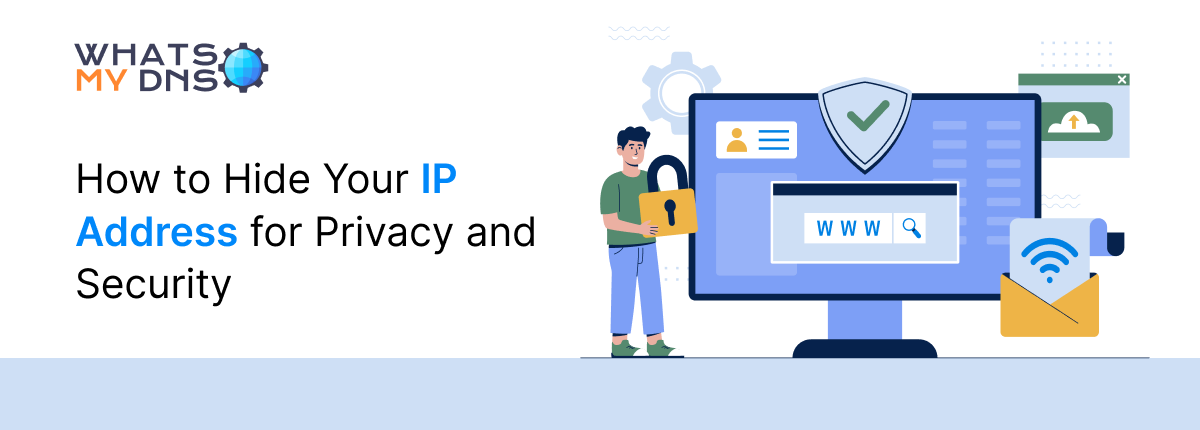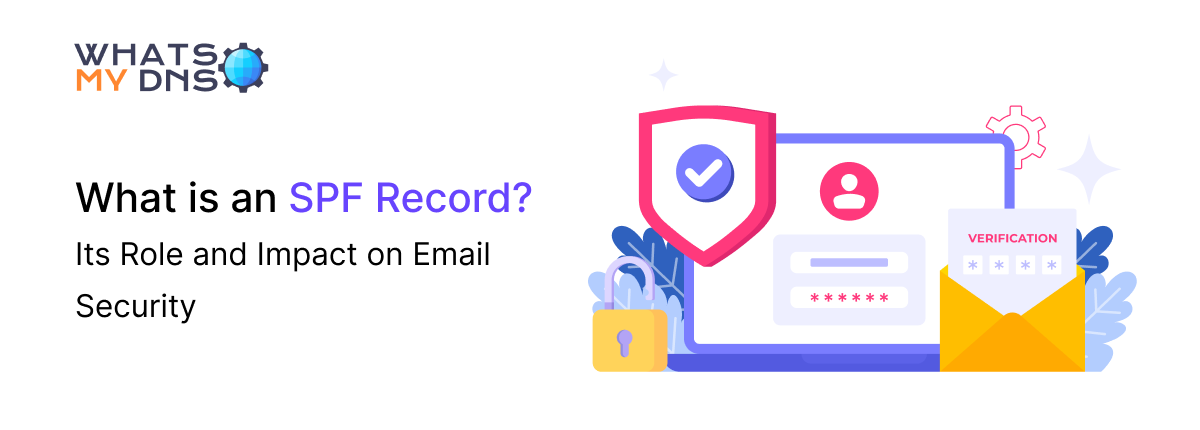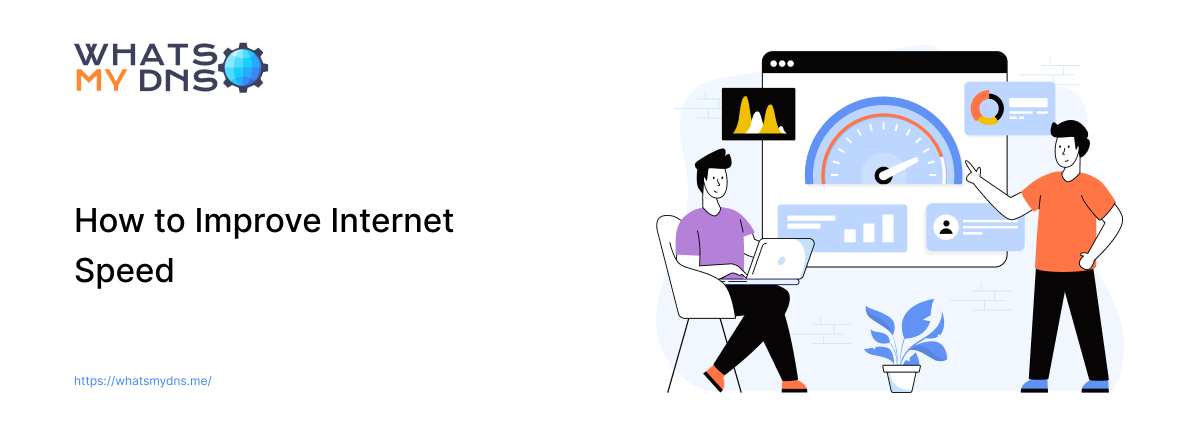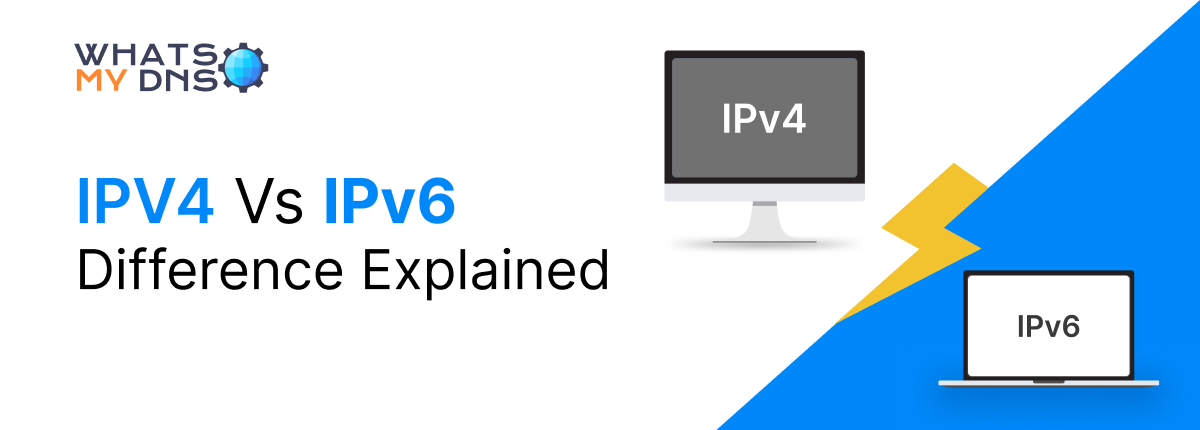How to Hide My IP Address

- 30 April 2025
IP addresses are a core component of modern networking. They function much like real-world house addresses and help identify resources such as servers and websites on the internet.
In modern networking (and the internet), IP addresses are used to locate and connect to servers and other computers. All communication over the internet is conducted via IP addresses, which identify the source and destination of the communication.
However, this also means that IP addresses are public and can pose significant privacy risks. This is why many people seek ways to hide their IP address.
In this article, we have listed several reasons that warrant hiding your IP address and provided instructions on how to do so. Let’s check them out.
Reasons Why You May Want To Hide Your IP Address
Here are some compelling reasons to hide your IP address.
Prevent Tracking From ISPs
Your internet service provider (ISP) can track your browsing activities using the public IP address it assigns to you. They can see which website you visited, when you visited it, and even which links you clicked on afterward.
That is a gross violation of your privacy. You have a right to your privacy, and you should be able to browse the internet in peace without worrying about somebody tracking your activity.
This is why knowing how to hide your IP address is essential.
Decouple Your Search History From Your IP Address
When you browse the internet, your public IP address is shared with all websites you visit.
Companies like Google, Yahoo!, and Microsoft that own search engines and make ad revenue from them have a financial incentive to profile your search activity. They collect data by tracking your IP address. They check what kind of websites you search for and visit, and they use that data to show you personalized ads that are designed to make you click.
That’s how they treat you like a commodity. This is disrespectful to you as a human. You have the right to be treated as a person, not a commodity. Therefore, you should hide your IP address to separate your online activity from your actual address.
This way, these companies won’t be able to create a profile against your IP address and monetize your activity.
For Security Reasons
If you know somebody’s IP address, you can do a lot of harm to them. Hackers and bad actors can use your IP address to find your approximate location. This can lead to more crimes if the hackers have information identifying you. By hiding your IP address, you can protect yourself from such crimes.
Bad actors can also DDOS your network by using your IP address. They can send an insane number of requests to your IP address using a botnet to overload your network. As a result, you will be unable to connect to or use the internet. And these are just a few examples; a truly determined hacker can do much worse.
To Avoid Geo Restrictions
Some countries have censorship laws that prohibit access to certain types of content. The internet also comes under the fold of these laws. So, ISPs are responsible for enforcing these laws.
By hiding or masking your IP address with a fake one, you can bypass these geo-restrictions and access censored content. This is particularly useful for journalists, historians, or researchers, as these are the types of individuals who typically require access to such content.
How To Hide Your IP Address
Now that you understand the importance of hiding your IP address, here are some methods to achieve this.
Use a VPN
A VPN (Virtual Private Network) is a service that hides your IP address by using encryption and tunneling.
In simple terms, your IP address is hidden, and all traffic originating from it is first encrypted and then tunneled to a VPN server. Then, the VPN server makes internet requests on behalf of your computer or device.
Anyone who tries to snoop on your IP address will be provided the address of the VPN server instead. Since many people use VPNs, profiling or tracking is not possible due to the mixed signals from numerous users.
How to Use a VPN
There are many free and paid VPN software available today. You need to do your research on which ones are better, especially in your country.
To use a VPN, simply follow these steps.
- Go to the VPN website (if you are on a desktop) or search for the VPN in your phone’s app store.
- Download and install the VPN.
- Open the app or program, and you will usually find a large button labeled “Connect,” “Hide My IP,” or a similar phrase.
- Click this button
- After a moment or two, you should be notified that you are now connected to a VPN server.
- Open your browser and go for an online tool to check your IP address.
- Verify that your IP address and associated location are different from your actual ones.
If they are, then you have successfully hidden your IP with a VPN.
Pros and Cons of Using a VPN
|
Pros |
Cons |
|
Hides your real IP address |
Can slow down the internet speed |
|
Encrypts your internet traffic for security |
Some VPNs log user data (check privacy policies) |
|
Bypasses geo-restrictions & censorship |
Premium VPNs require a subscription |
|
Protects against tracking & surveillance |
Some websites block VPN traffic |
|
Helps secure public Wi-Fi connections |
Not all VPNs are trustworthy (free ones may sell data) |
Use a Proxy Server
A proxy server is similar to a VPN, but it offers fewer benefits and features. A proxy server, just like a VPN, will first accept all your requests and then use its IP address to make those requests to the servers and websites you want to visit.
The websites see only the IP address of the proxy server and therefore cannot determine your actual IP address. In this way, your network activity is masked.
However, unlike a VPN, no encryption or tunneling is involved. So, someone savvy enough can tap into the communication between your device and the proxy server. An example of someone who could do this is your ISP.
So, proxy servers are great for hiding your activity from the rest of the internet and preventing companies from tracking you, but they don’t guarantee true privacy.
How to Use a Proxy Server
To use a proxy server, you have two choices: either use a web-based proxy or set one up using your OS settings. To use a web-based proxy, just follow the steps.
- Open a browser on your device.
- Search for proxy servers.
- Select one of the servers from the results.
- On the proxy server website, use the search bar to continue your browsing session.
All internet activities done on the proxy webpage will be hidden.
To set up a proxy server on your OS, follow these steps.
Windows:
- Open Settings → Network & Internet → Proxy
- Turn on "Use a proxy server."
- Enter the proxy server address and port
- Click Save and exit
Mac:
- Open System Preferences → Network
- Select your connection (Wi-Fi or Ethernet) and click Advanced
- Go to the Proxies tab and select the relevant protocol (e.g., HTTP, HTTPS, SOCKS).
- Enter the proxy address and port
- Click OK and Apply
Ubunut: Set Up a System-Wide Proxy (GUI Method)
There are several methods of setting up a proxy in Linux. Below is the graphical user interface (GUI) method for setting a proxy server in Ubuntu. This method applies the proxy settings to all applications using the system network settings.
- Open Settings → Click on Network
- Scroll down and click on Network Proxy
- Choose Manual
- Enter the proxy server address and port for HTTP, HTTPS, and FTP
- (Optional) Enter Ignored Hosts (websites that should bypass the proxy, like localhost or 127.0.0.1)
- Click Apply to save the settings
Now, all system-wide applications (like browsers) will use the proxy server.
Pros and Cons
|
Pros |
Cons |
|
Hides your real IP address |
Doesn't encrypt traffic (except SOCKS5 with encryption) |
|
Bypasses geo-restrictions & censorship |
Some proxies log user data |
|
Speeds up browsing with caching |
Can slow down the connection if overloaded |
|
Useful for accessing blocked content |
Free proxies may be unreliable or unsafe |
|
Can be used for web scraping & automation |
Not all applications support proxy settings |
Conclusion
This concludes our discussion on hiding your IP address. We discussed compelling reasons to hide your IP address, such as better security and more privacy.
We also discussed how to use VPNs and proxy servers to achieve those goals. We also highlighted the pros and cons of each approach, allowing you to make an informed decision based on your specific requirements.
Related Blogs

What is an SPF Record? Its Role and Impact on Email Security/Deliverability
Learn how an SPF record helps protect your emails from being marked as spam or spoofed, so they land safely in inboxes, not junk folders.
- 30 Apr 2025

How to Improve Internet Speed - Simple Fixes That Actually Work
Quick and easy tips to make your internet faster without needing technical skills.
- 16 Jun 2025

IPv4 Vs IPv6-Difference Explained
Understanding the key differences between IPv4 and IPv6 to understand how internet addressing is evolving — and why it matters for speed, security, and scalability
- 10 Apr 2025